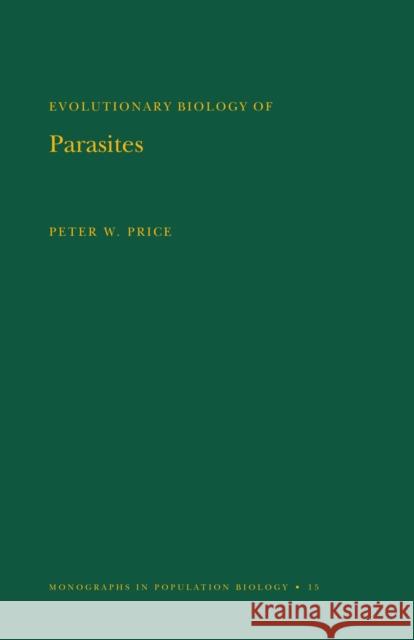Evolutionary Biology of Parasites. (Mpb-15), Volume 15 » książka
topmenu
Evolutionary Biology of Parasites. (Mpb-15), Volume 15
ISBN-13: 9780691082578 / Angielski / Miękka / 1980 / 256 str.
In spite of the fact that parasites represent more than half of all living species of plants and animals, their role in the evolution of life on earth has been substantially underestimated. Here, for the first time within an evolutionary and ecological framework, Peter Price integrates the biological attributes that characterize parasites ranging from such diverse groups as viruses, bacteria, protozoa, and fungi, to helminths, mites, insects, and parasitic flowering plants.
Synthesizing systematics, ecology, behavioral biology, genetics, and biogeography, the author outlines the success of parasitism as a mode of life, the common features of the wide range of organisms that adopt such a way of life, the reasons for parasites' extraordinary potential for continued adaptive radiation, and their role in molding community structure by means of their impact on the evolution of host species. In demonstrating the importance of parasitic interactions for determining population patterns and geographical distributions, Dr. Price generates further discussion and suggests new areas for research.










